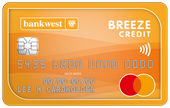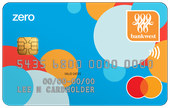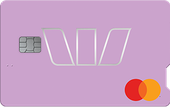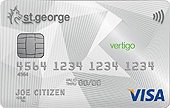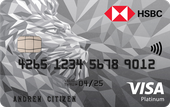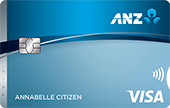Ready to graduate from Afterpay and start adulting? A credit card provides you with a line of credit from a bank or other lender. It can smooth out the peaks and troughs in your budget, give you a convenient way to make payments all around the world, act as a safety net if you have unexpected expenses that you can't afford to pay immediately, and even improve your credit score if used responsibly. So it can be a good idea to have one.
But getting a credit card for the first time can be a challenge.
What is the best credit card for first timers?
The truth is there is no single best first credit card. But there are several things to look out for when choosing the right credit card to apply for.
- Minimum criteria matter. Each card has a different set of eligibility criteria. If you do not meet those criteria, you should not apply since its very likely to be declined. You can find them on Finty or on the bank's website.
- Don't aim too high. Beginners with limited credit history should not expect to be eligible for premium cards. To increase your chances of being approved first time, limit your scope to basic credit cards.
Who is eligible for a credit card?
If this is your first time applying for a credit card, you may be wondering what the banks look for.
- Minimum criteria per card. Each card has its own set of criteria. These are generally for age, income, credit score, citizenship, etc. As a first timer, check what the bank requires before applying. Don't assume they won't check and apply anyway. If you don't meet the criteria, your application will be declined, and that can hurt your credit score and make it harder to be approved in future.
- Credit history and credit score. Credit cards are more readily accessible when you have an established credit history with a proven track record of repaying on time. A credit card first-timer is handicapped as their history of loan repayments may be non-existent or very limited, and therefore may not provide a lender with the evidence of satisfactory credit management in the past. All lenders tend to take the view that the best predictor of future account conduct is past account conduct. Without a credit history to consider in your application they have limited information on which to base their decision. But your past payment record in other areas may help. If you are unsure of what your credit report contains, you can check it here.
- Payment record. If you have used credit of any kind (such as a car loan) in the past and didn’t default on payments, your credit card application request will probably have a better chance of success. A landline telephone account, internet provider account, postpaid mobile phone account, gas or electricity account, can all help to establish your credit history if they are in your name.
Choosing your first credit card
With so many options to choose from, here are a few ideas to help make a better decision.
Students
If you are a university or TAFE student, then a student credit card could be good starter credit card. These are no-frills cards with basic features, but can be a good way to build your credit report when used responsibly.
What to look for
- Student-specific cards with minimal fees.
- Low interest rates.
- Perks like cashback on study-related expenses.
Tip: Use student discounts and offers to maximise card benefits.
Young adults and professionals
If you have good credit with an established history, a charge card may be worth considering. Charge cards have surged in popularity since they provide credit card benefits but each statement must be repaid in full, which is why they have been called the adults' BNPL.
What to look for
- Moderate credit limits to prevent overspending.
- Reward programs for regular expenses like commuting and dining.
- No or low annual fees.
Tip: Look for cards offering introductory interest-free periods or bonus rewards points.
Debt averse starters
If you want to move on from Afterpay and are concerned about credit card debt, you could consider a no interest credit card as a starter card. This relatively new class of credit card was developed as a response to the growing trend towards buy now pay later.
What to look for
- Low ongoing interest rates and fees.
- Introductory offers such as a sign up bonus.
- Integration with Apple Pay and Google Pay.
Tip: Most credit card have up to 55 days interest free when you pay the balance in full.
Casual workers
With incomes that can vary week-to-week, casual workers face unique budgeting challenges.
What to look for
- Low credit limits to align with fluctuating income.
- No annual fees.
- Flexible payment options.
Tip: Set up automatic payments.
Recent emigrants to Australia
Unfortunately, your credit score doesn't emigrate with you to Australia, so getting a credit card can be a bit more challenging. People on a temporary visa can also get a credit card; however, banks typically look for extra documentation and assurances such as proof of income, visa validation, bank statements, etc.
What to look for
- Basic cards for easy credit management.
- Educational resources on credit usage.
- Low minimum criteria to improve chances of approval.
Tip: Regularly monitor your credit score and understand factors affecting it.
How to apply for your first credit card
Once you have chosen the card that suits you best, the quickest and easiest way to apply is to do it online.
Step 1. Check the eligibility criteria. Make sure you check the eligibility criteria for the credit card you’re interested in before you apply.
Step 2. Click the application button. If you have seen a credit card on Finty that you want to apply for, click the green application button and you'll be directed to the bank's website and online application form.
Step 3. Complete the application form. You'll be asked to provide details, and in some cases documentary proof, about your identity, age (you need to be at least 18), citizenship or residency status, residential address, employment, income, and any assets and debts or loans you may have. It's a good idea to assemble all this information before you begin.
Note: You'll also need to think about how big a credit limit you need to apply for. A low limit – perhaps $500 or $1,000 – is recommended, until you get used to the idea of handling credit. You can apply for an increased limit later if you need it, although there are pros and cons to raising your limit.
If you want to know more about this, we have an in-depth guide to how the credit card application process works.
What happens after you apply?
Once you have decided on your first credit card and submitted your application, the bank will begin reviewing your details.
- How long it takes to get approved. While some cards advertise 'Instant approval' or '60 second approval', such approval is only conditional on the verification of the information you have provided. In practice it can take anything from a few business days to a couple of weeks before you receive a final decision, and for first-timer applications the approval process may take longer than it would for someone with an established credit history.
- The bank may need to confirm some details. Watch out for phone calls and emails from the bank. They may need additional information, proof of earnings, etc.
- Approval decision. Once the bank have completed their checks, and assuming you have passed, your account is approved.
- Card activation. The physical card will usually be dispatched within five days, sometimes less, although a few card providers take as long as 6-14 days to mail out the card. Many banks now issue a virtual version of your card that can be added to a digital wallet like Apple Pay or Google Pay and are available for immediate use.
Can a credit card build your credit?
Once you have your first credit card, using it responsibly is one of the best ways there is to build up your credit history and improve your credit score.
- Always aim to pay on time (and in full if possible). This means you avoid paying interest and shows that you are responsible.
- Stay within your credit limit. Not only does this mean avoiding over limit fees, it also shows that you can manage your card.
- Try to avoid buying things you can't afford. Use your card and pay it off. This keeps your credit utilisation ratio low, which helps build your score.
Pros and cons of getting your first credit card
Unsure if it's worth applying? Weigh up the benefits and disadvantages before deciding what to do.
Pros
- Build your credit. Using a credit card responsibly will help establish your credit worthiness, giving you access to cheaper finance in future.
- Improve your cash flow. You can use your credit card's interest-free period to spread the cost of purchases between paydays.
- Work your way up. While beginners applying for their first credit card may be somewhat limited to basic cards, over time you you can work your way up to eligibility for cards that earn rewards.
Cons
- Temptation to spend. If you are concerned about your willpower, then a credit card may not be for you. You can, however, request a lower credit limit.
- Possibility of debt. You can slip into debt if you don't pay off your card in full each month and continue to spend with it.
- You can hurt your credit score. Just as you can build your credit with responsible use, making late payments and using too much of your available credit can have a negative impact on your credit score.
